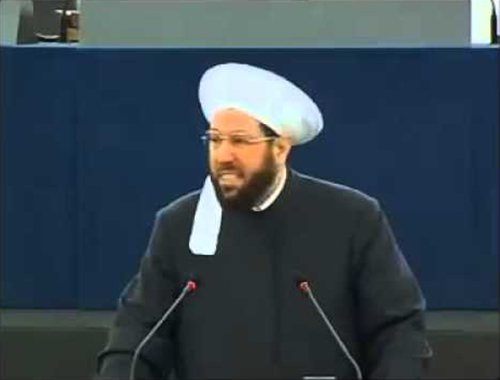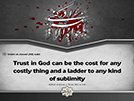Question Paper on Lesson 14
- Details
- Hits: 2358
Question Paper on Lesson 14
Question 1: [14 points]
True or False:
(a) Islamic society needs a divine educator who can guide people to the right path.
(b) All Qur’Änic verses are equally clear in their meaning and contain straight forward instructions.
(c) An Imam is a divinely appointed person whose function is to interpret and explain the Qur'Än according to God's purpose.
(d) The Qur'Än alone can guide people to the right path in the right way.
(e) The Qur'Änic verses have an inner meaning that can be derived by thoughtful research and intellectual inquiry.
(f) An Imam is appointed by the Prophet to continue the office of prophethood after his death.
(g) The Qur'Än has a beautiful outer meaning and a profound inner meaning.
Question 2: [20 points]
For each of the following statements circle the number of the most correct answer:
(a) If the Qur'Än was sufficient to guide Muslims to the right path, then
(i) the history of the Muslims would have been different.
(ii) exegetists would not have disagreed on the interpretation of Qur’Änic verses.
(iii) there would not be 73 sects in Islam each claiming its interpretation of the Qur'Än as most accurate.
(iv) people would interpret the Qur'Än according to their personal preference.
(b) Imams are appointed by
(i) people.
(ii) the Prophet.
(iii) prominent people of the community.
(iv) God.
(c) What is the most important quality of a divinely appointed Imam.
(i) honesty.
(ii) integrity.
(iii) truthfulness.
(iv) infallibility.
(v) trustworthiness.
(d) Exegetists are scholars and intellectuals who
(i) translate the Qur’Änic verses.
(ii) interpret the Qur’Änic verses.
(iii) narrate hadith.
(iv) explain the sunnah.
(v) describe history.
(e) is logical to conclude, based on this lesson, that an Imam should provide
(i) spiritual leadership.
(ii) temporal authority.
(iii) moral leadership.
(iv) a political leadership based on highest moral and ethical standards.
(v) both spiritual and political leadership based on the Qur'Än and sunnah.
Question 3: [8 points]
Describe the hadith narrated by the Sunni scholar, Imam Ahmad ibn Hanbal, which undeniably proves not only the necessity but also the existence of a divinely appointed Imam.
Question 4: [8 points]
Explain and discuss the most powerful argument that a disciple of Imam Ja`far as-SÄdiq (a.s.) presented to a man from Damascus against the belief that the Qur'Än is sufficient to guide the people to the right path.
Notes:
[12] Al-Kulayni, al-Usul min al-Kafi, vol. 2, p. 599.
[13] Al-Kashani, Tafsir as-Safi, vol. 1, p. 39.
[14] Tafsir Mir'atu 'l-Anwar, p. 16.
[15] Ibn Hanbal, Musnad, vol. 3 (Beirut) p. 17; al-Amini, al-Ghadir, vol. 1, p. 55; Ghayatu 'l-MarÄm, p. 212











